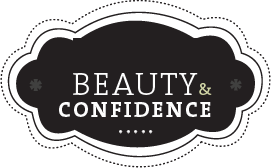Beat Home Allergens
To ease your child's allergies, you probably encourage her to stay inside when the pollen count is sky-high. But what if it's your home that is causing those sniffles? Many parents don't realize that kids with seasonal allergies may also be sensitive to allergens indoors, like dust mites, mold and pet dander. If your little one tends to have symptoms year-round or sneezes like crazy after petting Rover, see your health care professional. Then, consider making these moves to beat home allergens:
1. Leave your shoes at the door.
Place a bin and clothes rack by the door and ask family members to take off their shoes, jackets and bags before entering. That way, you'll prevent tracking pollen throughout your home. If your child is particularly sensitive, you may also want to change your outfit and rinse off any residual pollen in the shower too.
2. Run the air conditioner.
Pollen can enter your home through open windows and settle on furniture, while fans may stir up dust. Try shutting your windows and using your air conditioner in your home and car to block out those allergens. Just make sure to clean the unit's air filter regularly.
3. Keep tabs on Rover.
When your pet comes in from the outdoors, wipe him down with a wet towel to remove any pollen clinging to his fur. If your kid is also sensitive to dander, teach your pet to stay off furniture and out of your child's bedroom.
4. Wrap up your bed.
Keep dust and pollen from burrowing into your pillows and mattress by encasing them with covers.
5. Do laundry regularly.
To remove allergens, wash bedding weekly in hot water that's at least 130 F (54.4 C). Dry bedding in a dryer -- don't hang it up outside -- and remember to remove it promptly. Leaving it in the machine can encourage mold growth. Cold temperatures also kill dust mites, so pop delicate items, like soft stuffed animals, into the freezer for 24 hours.
6. Ban cigarettes.
It's a no-brainer, but some parents need reminding. The chemicals in smoke can aggravate allergies, so declare your home and car smoke-free zones.
Like this article? Get more by following us on Facebook at Beauty & Confidence .






